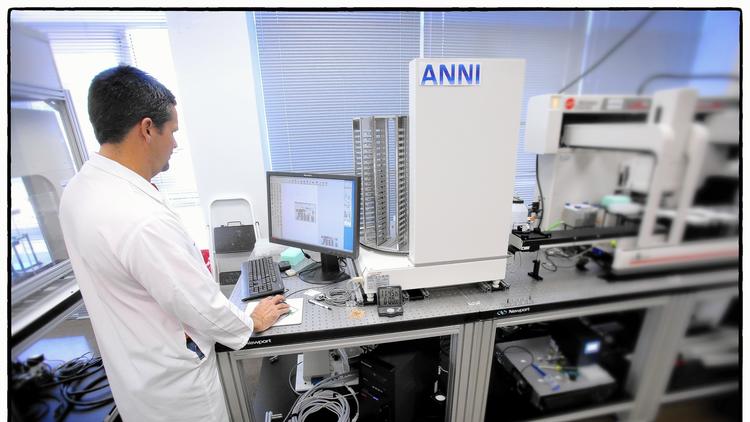orlando company using simulators to stop virus spreading
Orlando tech companies target Ebola threat

Your thoughts?
Orlando tech companies target Ebola threat
Amid the global battle against Ebola, some Central Florida companies are developing what could become critical parts of the arsenal against the deadly outbreak, industry experts say.
Scientists at VaxDesign Corp. are creating "test tube" human lungs for testing Ebola vaccines. Computer Engineering & Simulations Inc. is making "video-game" training for pandemic-response leaders. And engineers at Vestagen are designing "germproof" wear that could aid health-care workers in the deadly virus zone.
"That kind of work is really important in our response to this crisis," said Alex Fong, a life-sciences physicist and president of the Florida Photonics Cluster, an industry advocacy group based in Orlando. "Hopefully, these companies will be able to step up to the challenge and make a difference."
As thousands died in west Africa's Ebola outbreak since late 2013 — nearly 200 of them health-care workers — Ben Favret and Orlando-based Vestagen Technical Textiles Inc. looked for a way to help.
They teamed up with Atlanta-based MedShare International, a nonprofit humanitarian organization that provides donated medical supplies worldwide. Now MedShare is shipping thousands of Vestagen's microscopically protected hospital
"Health-care workers are on the front lines of this thing," said Favret, Vestagen's chief executive officer. "And they deserve every possible advantage. We're not at all claiming our scrubs alone will stop Ebola. But they will give workers an extra layer of protection that is urgently needed."
Another crucial part of the fight against Ebola is training the front-line workers, said Waymon Armstrong, CEO of Engineering & Computer Simulations. ECS is creating a computer-based Ebola "war game," using some of the same emergency-response training technology it developed for agencies such as the Federal Emergency Management Agency (hurricanes), Centers for Disease Control and Prevention (anthrax) and the National Guard (civil unrest, wildfires).
"Obviously, it's quite a difference going from hurricanes to Ebola," Armstrong said. "Our software is being modified to show the logistics involved in combating Ebola, demonstrate how it spreads from country to country and how response teams have to work together."
ECS' system is on target to be ready within a couple of months to potentially train international aid workers and the U.S. soldiers who have been deployed to west Africa, he said.
Scientists at VaxDesign's Central Florida Research Park operation are working on a longer-term solution to the Ebola threat, officials said. Since Ebola attacks the human respiratory system, they are creating a replica of the lung's immune system in a test tube to be used in developing potential vaccines. The actual virus testing is performed by CDC scientists at out-of-state labs.
"Research like ours does become more high profile when people see how much of an impact an outbreak can have," said Robert Parkhill, operations director. "When they see how quickly it can spread, how many people can die, the threat is suddenly on everybody's radar."
The U.S. government estimates it will spend $1 billion on the emergency response to the Ebola outbreak — and that is largely near-term funding.
However, such crises rarely lead to much additional funding for research to prevent, treat or cure the deadly disease, said Fong, the Orlando physicist and high-tech executive. "When there's an outbreak like this, there is a lot of money that goes into the tactical emergency response," he said. "But to find a cure, there has to be more long-term funding. The problem is diseases like this are not big-ticket items for most corporations when it comes to revenue. It doesn't have as much commercial potential as other research work."
Meanwhile, once the current outbreak appears to be under control, the issue will probably fade from the headlines and the funding priorities for disease research will shift, said Eileen Gregory, a professor of microbiology and immunology at Rollins College.
"I may be cynical, but I don't think this crisis will have any effect on long-term funding for Ebola," she said. "Unfortunately many of the decision makers only think short term. Members of the public also tend to rapidly lose interest in science-related issues, and so the funding goes to whatever is the latest crisis at the expense of previous crisis."
Your thoughts?
